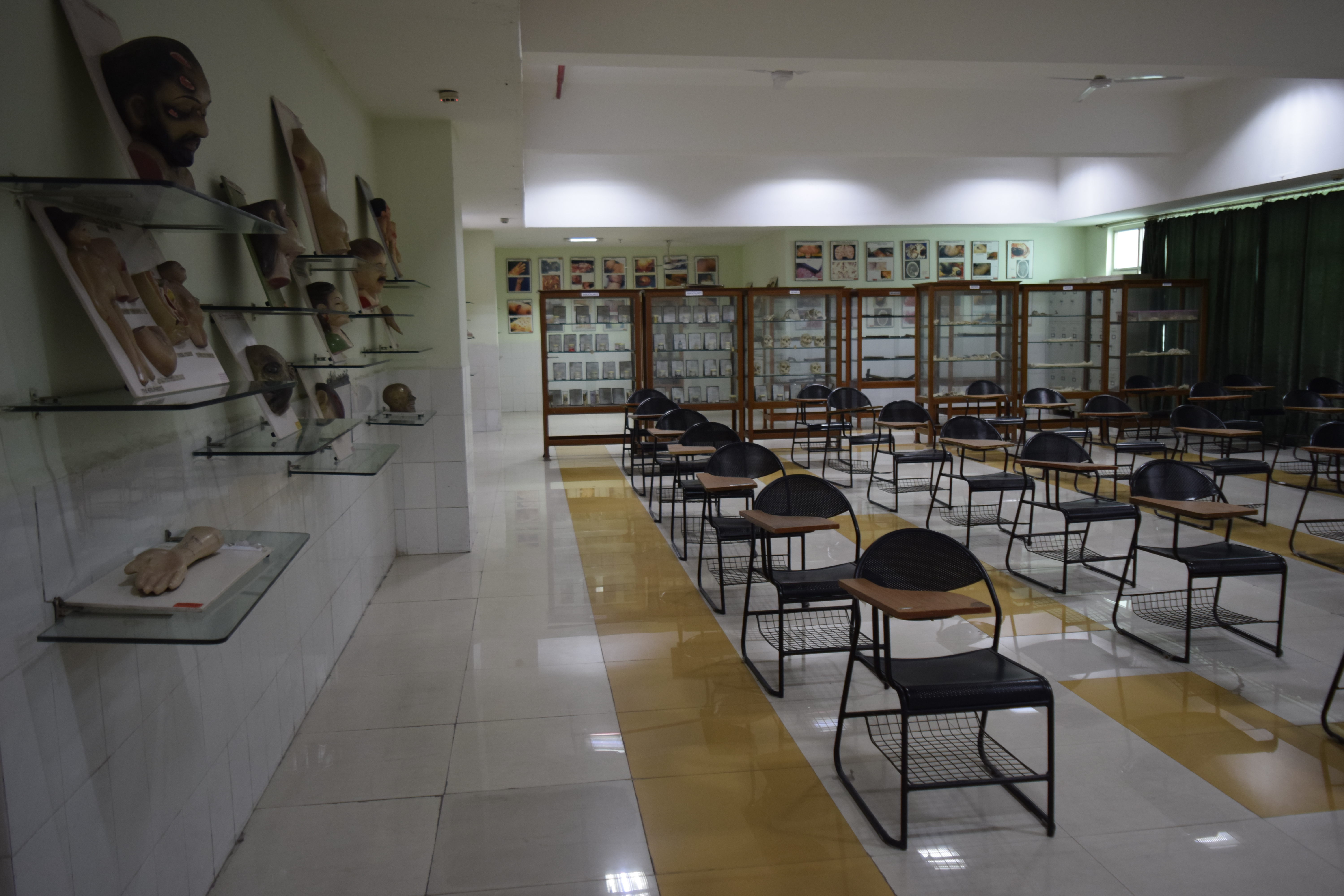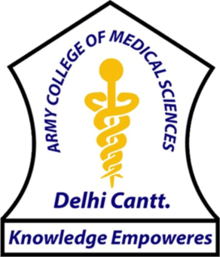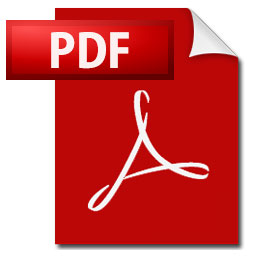Introduction
The knowledge of Forensic Medicine benefits doctors throughout their medical career, whether they take it up as speciality or not. No doctor is immune from medico legal issues in today’s world.
The Department of Forensic Medicine is therefore involved in teaching the young doctors -in- the- making about how to steer through the medico legal matters that they will be coming across in their future careers. The department is involved in teaching the under graduate MBBS students of second and third year about the routine forensic work like doing autopsies, knowledge about the law and legal system of India, clinical forensic medicine, toxicology, etc. The department takes extensive theory classes along with practical teaching in order to enhance and supplement the medical students’ medico legal knowledge.
Key Points:-
1. A large museum well stocked with models and actual specimens including poisons, weapons, preserved specimens, etc that makes it easy for the students to visually and practically supplement their theoretical knowledge.
2. It has a proper laboratory that has all the necessary equipment in order for the students to conduct various experiments on their own and learn from them.
3. It has a well stocked departmental library with the latest edition forensic textbooks by well known national and international authors as well as many national and intenational medicolegal journals and periodicals. The library is regularly updated with the latest medicolegal publications. This is for the use of the faculty as well as the students.
4. The department regularly holds hands on training in the form of Moot Courts which teaches and trains the students about how the Indian Courts work, how to navigate the judicial proceedings, how the doctors have to behave when in court, how to give evidence and all aspects of the legal system.
5. Theory classes are regularly augmented by regular quizzes and seminars that encourages the student to think for themselves and present their knowledge instead of merely drinking up what has been taught.
6. All the classes are held according to the latest NMC Guidelines with all the teaching divided into lectures, short group discussions, etc so that each topic can be taught in a manner that leads to maximum grasp by the students.
The main aim of Department of Forensic Medicine is to produce a physician who is well versed with medicolegal responsibility and ethical problems in practice of modern medicine in this era of consumer awareness.

ACADEMICS
Meticulously structured curriculum encompassing detailed lectures, interactive small group discussions, self-directed learnings, case-based learnings, complemented by seminars and practical learning as per the NMC guidelines. The department's library boasts an extensive collection of specialized books covering diverse areas such as forensic pathology, legal medicine, toxicology, forensic anthropology, Clinical Forensic Medicine and DNA analysis. The teaching methodology ensures a comprehensive learning experience. Regular quizzes, designed around real-life forensic scenarios, not only test the students' knowledge but also keep their enthusiasm for the subject alive. Undergraduate students are encouraged to broaden their horizons by participating in and presenting at workshops, continuing medical education programs (CMEs), and other relevant events. .
TRAINING
Training in Forensic Medicine is conducted through multiple educational approaches like interactive lectures, case-based discussions, practical workshops, and regular quizzes. These methods are designed to engage students actively and deepen their understanding of forensic principles and practices. In addition, formative and summative examinations are conducted to evaluate students' comprehension and application of the subject. Students’ feedback is gathered which provides essential perspectives that aid in the continuous improvement and enrichment of the forensic medicine educational experience.

 Faculty Details
Faculty Details